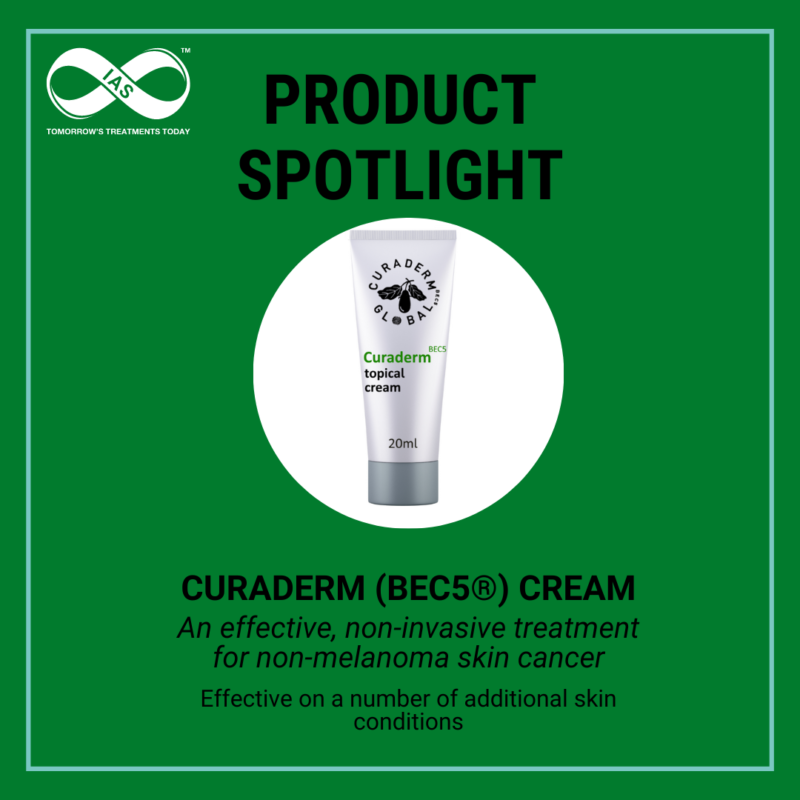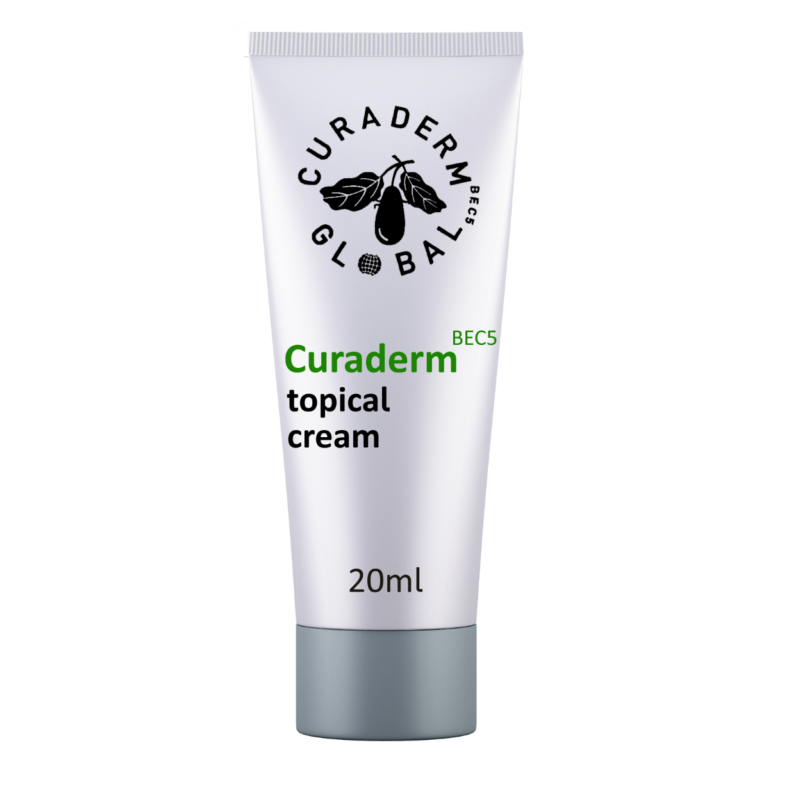Can Curaderm BEC5® Cream help with Psoriasis?

Psoriasis is a common, immune mediated (this means it is caused by an abnormal immune response) condition that affects the skin. It looks unsightly, but it is not contagious, although many sufferers feel self-conscious.
It is a chronic condition – this means it can last a long time, but often presents periodically – sometimes it can be severe, and other times very mild or clear up completely.
Psoriasis is caused by skin cells being made/replaced too quickly; in people who do not have Psoriasis, this process can take 3-4 weeks. In Psoriasis sufferers, this happens over the course of a few days.
What does Psoriasis look like?
Scaly patches on the skin are the typical presentation of Psoriasis; they are dry and can look either pink or red, although can also look darker, almost brown or purple, depending on skin tone. It can appear anywhere on the body and often in multiple locations – the most common are outlying joints such as the knees and elbows. The scalp and back are also commonly affected.
Psoriasis patches can be itchy or sore but not always, and often appear in small patches rather than large areas.
Psoriasis impact on everyday life
This very much depends on the severity of the condition and the individual – during a bad flare, the patches may be very itchy and sore, and in places like the elbows or knees can cause pain when using the affected joints. Some sufferers can also develop psoriatic arthritis, which is a complication that causes the joints to become painful, stiff and swollen.
Other problems caused by Psoriasis include anxiety and low self-esteem – as the patches are unsightly, someone who has Psoriasis may feel very self-conscious of their appearance. This can lead to depression and stress.
Psoriasis treatment
There is no cure unfortunately, but over the years topical creams and treatments have been developed to improve and treat the symptoms/skin patches affected.
Conventional treatments include topical corticosteroids, vitamin D analogues or even phototherapy. Some people may also need oral/injected medications such as Acitretin to reduce skin cell production, but this is typically a second line course of action once all other avenues have been exhausted.
Curaderm BEC5® Psoriasis treatment
Curaderm cream can be used as an alternative treatment for Psorasis – it is applied topically but unlike traditional topical preparations, it is completely natural and does not contain any invasive ingredients that can cause harmful side effects on unaffected skin.
Well known in the antiaging and health community as an effective, non-surgical skin cancer treatment, Curaderm BEC5® cream is made from a plant extract called ‘Solasodine Glycoside’ – aka eggplant/aubergine. Whilst it’s primary use is for basal-cell carcinomas (BCC), squamous cell carcinomas (SCC) and actinic keratosis (sunspots), results on Psoriasis patches have also been successful at easing the condition.
For further information on Curaderm BEC5® cream, please visit https://www.antiaging-systems.com/products/curaderm-bec5/.
